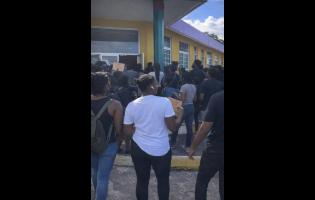Tighter measures to govern e-waste export
Starting January 1, anyone wishing to export electronic waste (e-waste) from Jamaica will need to follow new rules under the Basel Convention. The change, agreed upon in 2022, expands the control over the movement of e-waste, which includes broken or outdated electronics that are no longer functional.
Previously, much of the e-waste was misrepresented as working equipment and exported to developing countries, where it posed serious environmental and health risks.
The new rules mean that the National Environment and Planning Agency (NEPA) is required to seek and obtain prior approval from the competent authorities of transit and importing states before granting a permit for the movement of e-waste from the island. NEPA said that Jamaica had been observing this procedure for some time. However, the amendment will allow for greater control over the trading of e-waste, as all items, whether hazardous or non-hazardous, will now be subjected to the new procedure.
Exports of e-waste were initially intended for the trade of functioning equipment to receiving countries. However, it was found that much of the equipment exported were non-functional materials that were being traded under the guise of being functional, and therefore, could only be discarded. As such, the disposed e-waste posed serious environmental hazards for receiving nations which were, in the main, developing countries.
The danger posed from the export of non-functional e-wastes was that they were typically burnt at dump sites to reduce volumes, and this caused the release of toxic substances into the environment.




































